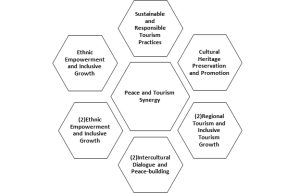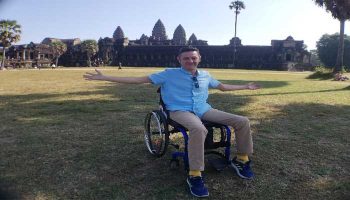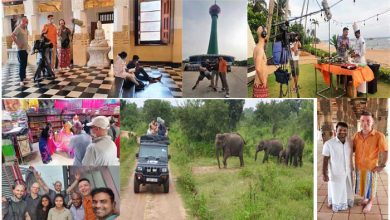Tourism and Peace: Bringing Harmony and Prosperity for All


By
Prof DAC Suranga Silva
Professor in Tourism Economics, Sustainable Tourism Unit (STU) University of Colombo, Sri Lanka
Emails: drsuranga@econ.cmb.ac.lk; drsuranga3@gmail.com
According to the Global Peace Index (GPI) in 2024, a global decline in peacefulness was observed, with almost every region experiencing a decrease except for Russia and Eurasia. This trend highlights the growing importance of fostering peace initiatives worldwide (https://gfmag.com/data/most-peaceful-countries/).
Peaceful nations, on the other hand, reap significant economic benefits. A study by the Global Finance Magazine (https://gfmag.com/data/most-peaceful-countries/) suggests a strong correlation between Peacefulness and Economic Prosperity. Peaceful societies offer a more stable environment for businesses to flourish, attract investments, and drive economic growth.
Furthermore, the tourism industry has emerged as a powerful force for promoting global peace, security, and cross-cultural understanding (https://www.visionofhumanity.org/tourism-and-peace/). When people travel, they experience different cultures firsthand, fostering empathy and breaking down stereotypes. Such dynamic can foster greater understanding among nations, ultimately paving the way for a more peaceful world.
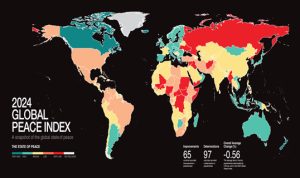
The proven evidence that the strong positive correlation between tourism development and sustainable peace initiatives implemented by various destinations has reinforced the importance of tourism for not only bringing the peace among fragmented societies but also socio-economic advantages through tourism development of these destinations. Countries that invest in creating a safe and welcoming environment for tourists are not only promoting peace but also laying the groundwork for a thriving tourism sector
Therefore, the theme of UN Tourism World Tourism Day Celibrations-2024: “Tourism and Peace” is well fit for tourism development in many countries in the world due the decisiveness of peace for their tourism development. Sri Lanka is also one of the most affected tourist destinations along with the experience of devastated impact of the prolonged, more than 30 years’ ethnic conflict and later the Easter Sunday Terror Attacks in 2019, despite the remarkable recovery of its tourism at present.
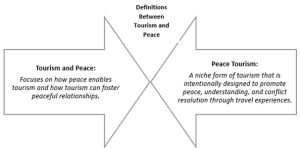
Sri Lanka Tourism and Celebration of UN World Tourism Day -2024
The Celebration of UN World Tourism Day -2024 under the theme of Tourism and Peace will open a new opportunity for Sri Lanka Tourism that can be used and capitalize the great potential available with the cultural diversity of the country. By promoting Sri Lanka’s rich cultural heritage, diverse religious traditions and ethnic diversity, the growth of tourism in Sri Lanka can create a distinctive opportunity to promote inter- and cross-cultural understanding and attractions for community-based, inclusive and integrated sustainable tourism development while fostering peace and harmony within the nation.
Beyond its economic benefits through a one-sided approach focusing only foreign exchange earnings, employment generation, development of investment & infrastructure and improvement of government revenues, Sri Lanka Tourism can play a pivotal role in strengthening social cohesion and fostering a culture of peace and building empathy and harmony for the societies and communities fragmented at present due to war and other related various reasons.
To maximize the potential of tourism for peace and harmony, it is essential to adopt a holistic approach that considers the social, cultural, economic and environmental dimensions of tourism development. This includes:
- Sustainable and Responsible Tourism Practices:
- Encouraging environmentally friendly and culturally sensitive tourism.
- Ensuring that tourism strategies that benefit for all ethnic groups and societies
- Cultural Heritage Preservation and Promotion
- Protecting and promoting Sri Lanka’s cultural assets.
- Providing meaningful experiences for both locals and visitors.
- Ethnic Empowerment and Inclusive Growth
- Empowering local communities to participate in tourism.
- Promoting collaborative efforts of stakeholders for ethnicity and cultural diversity based tourism
- Intercultural Dialogue and Peace-building
- Fostering understanding and mutual respect among different groups.
- Hosting ethnic diversity-based events to attract tourists.
- Regional Tourism and Inclusive Tourism Growth
- Promoting regional tourism through different unique tourism product development
- Empower and encourage regional tourism stakeholders to promote regional tourism based different ethnic diversity and cultural heritage.
